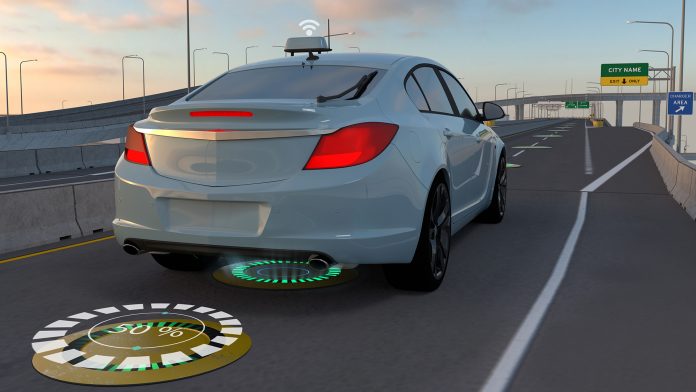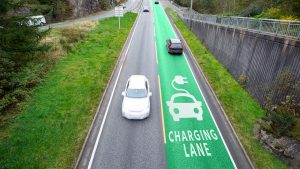Local areas in the UK will deploy smart street lamps to offer improved wireless connectivity for EV charging hubs.
Part of a £1.3m government pilot, the wireless charging pilot can not only improve EV charging hubs, but also monitor air quality and save energy.
With the rising demand for wireless services, companies are increasingly exploring opportunities to install infrastructure on lamp posts, traffic lights, CCTV columns, benches, bins, and bus stops.
The successful pilots will match government funding for this programme, receiving a total investment of over £4m to help boost local connectivity.
How can wireless charging make EV charging hubs more functional?
There are currently around 48,000 EV charging hubs in the UK, and this is set to grow rapidly in the next few years.
EVs generally have shorter ranges than other vehicles, which means they need to access high-powered chargers more frequently.
For businesses operating fleets of electric vans, this can impact productivity and efficiency, with vehicles required to return to their depot during the day for charging. This creates ‘stem mileage’, which equals the wasted time and mileage accumulated from travelling from the delivery route to the depot.
Wireless charging allows drives to charge while parked near wireless EV charging hubs instead of using wires or driving miles to a location where the vehicle can be plugged in.
Enabling vehicles to power up while loading and unloading, as well as when parked, wireless charging provides greater flexibility.
Wireless technology is set to become an integral part of UK infrastructure
By trialling the use of wireless tech across EV charging hubs and other areas, the aim is to show how state-of-the-art wireless technology can become an integral part of UK infrastructure.
It will connect public services and businesses in new ways to realise the full benefits of 5G and advanced connectivity.
Minister for Data and Digital Infrastructure Sir John Whittingdale said: “The way we stay in touch, access information, and do business is underpinned by digital connectivity.
“A world-class wireless infrastructure will be the foundation for the jobs, skills, and services of the future.”
He added: “We want to ensure that towns and cities across the UK are right at the forefront of this connectivity revolution, ready to seize the opportunities it will bring for local communities, which is exactly what the pilots for EV charging hubs are about.”
The pilot is designed to support the UK Government’s Wireless Infrastructure Strategy, which sets out how the UK will put wireless connectivity at the heart of new and existing infrastructure, while driving private investment, boosting innovation, and unlocking new opportunities for economic growth.
The pilot programmes will begin from October 2023 and will run until 31 March 2025.










